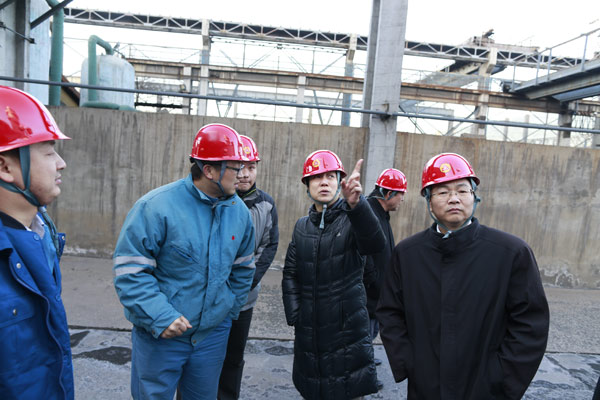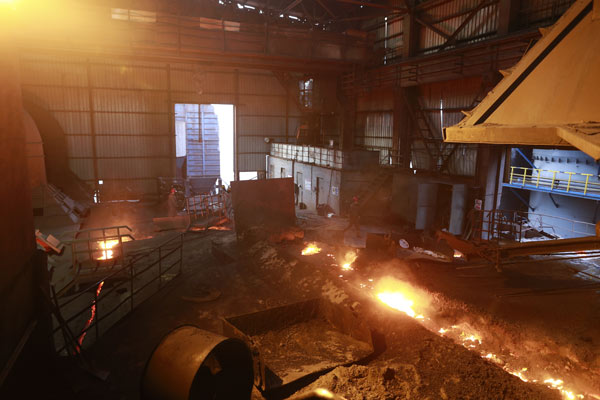Cities hit hard by smog
By Wu Wencong (China Daily) Updated: 2013-12-09 08:29
|
 |
|
Sui Xiaochan (right) and her inspection team at work at the Tianjin branch of the oil company Sinopec. PHOTO BY FENG YONGBIN / CHINA DAILY |
Sui Xiaochan, head of the environmental emergency and accident investigation center at the Environmental Protection Ministry, headed a team to inspect Tianjin late last month.
"Stop the car right away and take a photo of that chimney," Sui Xiaochan told the driver, pointing at a chimney some 200 meters away that was giving off thick black smoke.
Ten minutes later, the car stopped outside the chimney, located in a residential district of Tianjin, and Sui and her colleagues soon found themselves inside a coal-fired heating station, built right in the middle of a residential community called Yibaibeili.
Several coal stockpiles stood in the open space between two residential blocks, where in most Chinese communities, a small garden is usually located. The coal was stacked so close to the buildings that one could easily have opened a window and picked up a lump.
It was a heavily polluted day, with PM2.5 readings higher than 300 micrograms per cubic meter, meaning that the level of fine particulate matter smaller than 2.5 microns, fine enough to penetrate the lungs, was high enough to pose a serious health risk. The World Health Organization's safe limit is 25.
The coal, a potential source of dust pollution, lay uncovered and open to the elements. An elderly woman walked slowly past the piles. She was carrying an infant, but neither of them wore protective masks.
Sui asked her assistant to take photos of the stockpiles and of the chimney, which was slightly taller than the six-story building it stood beside. Then she took out her handbook and wrote down the name of the community and the address of the heating station.
Collecting the evidence had taken less than five minutes. We returned to the car and drove away before any of the security staff had even noticed us.
|
 |
| A workshop at the Zhasanyoufa Iron and Steel Complex in Tianjin.PHOTO BY FENG YONGBIN / CHINA DAILY |
- China 'incredibly innovative' in many areas: Apple CEO
- City official: Guangzhou further committed to opening-up
- Jack Ma: Globalization backed by technology will cut inequality
- HNA confirms interest in ASEAN's infrastructure investment
- Comments on Xi's letter to 2017 Fortune Global Forum
- China to create more opportunities for the world: Xi
- US tax cuts impact on China two-sided: economists
- Chinese enterprises job fair to be held in Sri Lanka

















